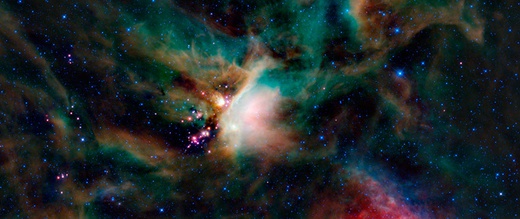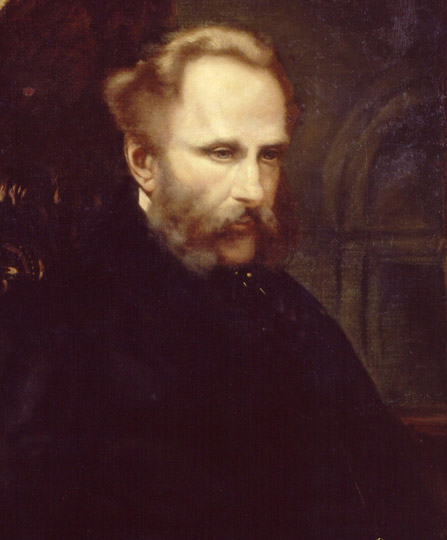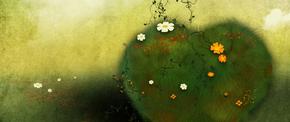The views expressed in our content reflect individual perspectives and do not represent the official views of the Baha'i Faith.
Everyone loves a mystery.
Anything mysterious just naturally attracts us human beings, since we’re such curious creatures.
Neurologists say that our inherent curiosity arises out of novel, complex and unknown experiences combining to create a sensation of uncertainty in the human brain. For some unknown reason, our brains don’t like that sense of uncertainty – so when we experience that sensation, our curiosity tries to dispel it by investigating and finding out the answers. We are, as one philosopher put it, the question-answering species.
That’s exactly how I felt about God as a teenager. Plagued and bothered and perplexed by the question of whether or not God exists, I spent an enormous amount of time trying to figure it out. I read everything I could get my hands on, talked to people from different faith traditions, debated with atheists and asked just about everyone I knew whether they believed in God and why or why not.
I heard a quote then that I’ve always remembered. It comes from the British historian Alexander William Kinglake, and I thought at the time that it seemed incredibly insightful: “All churches should bear the inscription IMPORTANT IF TRUE.”
I realized this much: the answer to the crucial, critical and intensely important question of the existence or non-existence of God made everything else seem secondary. I figured that if no God existed, I could safely ignore all the religions as pure superstition, live by my own rules and find my own way in the world. On the other hand, if God did exist, I had to make some pretty foundational decisions in life about which religions were true, and which one, if any, I could wholeheartedly accept and believe.
During that questing and questioning period of my life I came to the conclusion that this profound mystery defines our central human dilemma.
That realization led me to the science of ontology. Have you heard of it? Well, I certainly hadn’t, until a teacher introduced me to the field. Ontology is the philosophical study of the nature of being. Part of the whole area of metaphysics, ontology concerns itself with what actually exists and what doesn’t exist. Ontology’s central question – Does God exist? – leads to many more questions about what does and doesn’t have an actual existence, a state of being.
Here’s an ontological question, for example: Do you have a mind? If so, where is it?
Most people would answer that their mind exists somewhere in their brain. But many of the world’s greatest and most beloved philosophers and Faiths – Plato, Aristotle, Descartes, Heidegger, the Yoga and Samkhya schools of Hindu philosophy, plus just about all of the major world religions – advance the idea of dualism, which means that our physical brains and all the thoughts that make up our minds may be two separate entities. Many of these philosophers and Faiths link the existence of a mind more closely to the human soul than to the brain itself. They describe our higher functions – intentionality, care for others, love – as qualities of the mind and the soul together.
So when I came across the Baha’i Faith during this period of intense questioning and search, I spent three years asking questions about God.
The answers I got from the Baha’is made me think of a Creator in a whole new way. One very intelligent Baha’i told me that we can solve the mysteries of what happens in life with sufficient information, but the only way to understand why it happens is to actively explore the idea of a permanent mystery at the center of all existence. Another Baha’i said that’s why God sent us Prophets, Manifestations, the Founders of the world’s great Faiths – so they could serve as intermediaries between humanity and God, and we could begin to perceive the eternal mystery. And one Baha’i simply read me this profound and beautiful quote from Baha’u’llah:
To every discerning and illumined heart it is evident that God, the unknowable Essence, the divine Being, is immensely exalted beyond every human attribute, such as corporeal existence, ascent and descent, egress and regress. Far be it from His glory that human tongue should adequately recount His praise, or that human heart comprehend His fathomless mystery. He is and hath ever been veiled in the ancient eternity of His Essence, and will remain in His Reality everlastingly hidden from the sight of men. – The Kitab-i-Iqan, p. 97.
My soul resonated. I could feel how right this Unknowable Essence idea seemed. Such a sagacious and metaphysically deep view of the Creator made me think of God in an entirely new and unbounded way. The old, childish concepts faded away quickly in the light of this new one.
Did I accept the existence of God right away? Nah. Sadly, I’m too stubborn. And as I said earlier, my family was kind enough to leave me with lots of authority issues baggage. So despite the fact that these Baha’i answers to my questions made sense and resonated inside me, I kept questioning. I wanted to be sure.
I decided to take a look at the arguments for and against the existence of God throughout history, and evaluate them for myself.


















Comments
Sign in or create an account
Continue with Facebookor